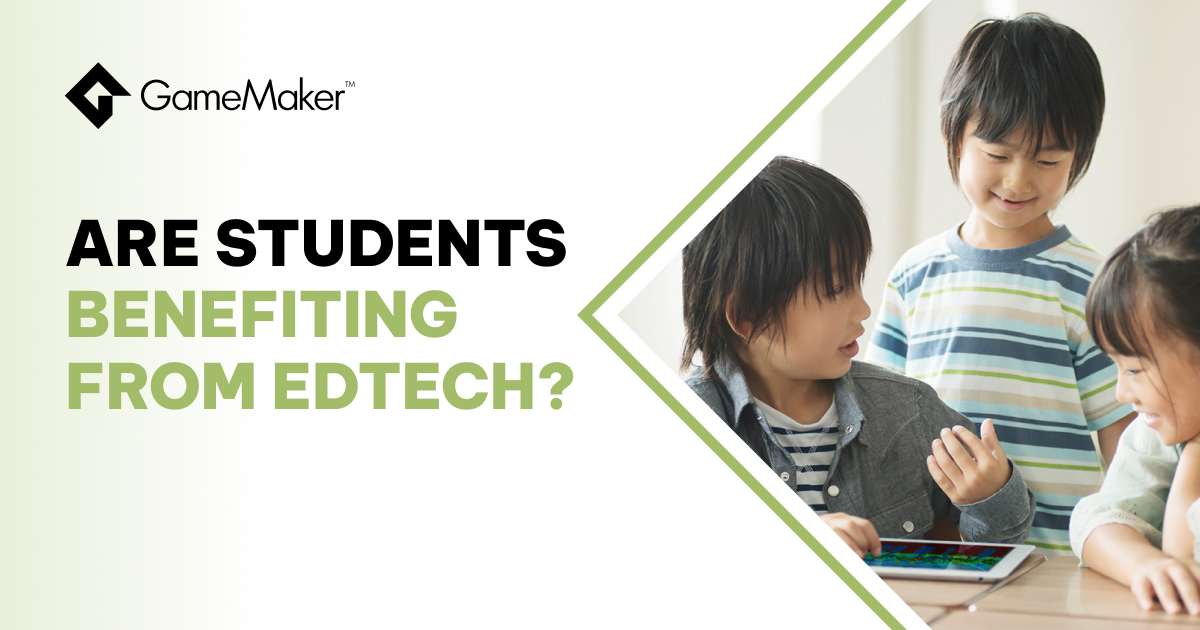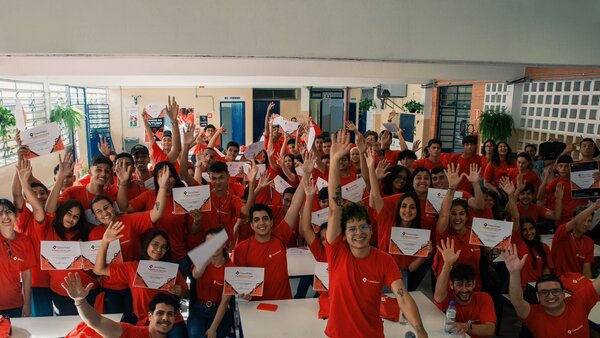Schools and teachers love to bring the latest technology into their classrooms: they can create more engaging environments for students, and help them learn skills and tools that will underpin the jobs of the future. But is this the right approach?
GameMaker’s head of Education Relations, Frank Moody, considers the pace at which schools integrate technology, its impact on the classroom, and whether students are actually benefiting from EdTech.
Is EdTech Dead?
In her June blog post, ‘EdTech is dead - and maybe that's OK’, Mary Beth Hertz explains how EdTech is no longer the shiny toy in education that’ll single-handedly save your classroom.
She considers how technology continually promises much but delivers little, and explores the broader - sometimes darker - impacts that it has on our students.
Everything she discusses is completely relatable to my 20+ years in education. However, one line piqued my curiosity:
“Online privacy, media literacy, screen time, online discourse, cyberbullying, and many other issues all became front and center and added an extra layer of consideration for me as a teacher.”
Before now, I never really thought about the amount of classroom time EdTech and digital tools may be taking from our classrooms, our teachers, and our students.
I used to run technology classes specifically designed to engage students in learning the tools of the future. Not all schools have the luxury, budget, and personnel to provide a technology track, though, so I have to ask:
- What has been the cost of forcing technology into classrooms?
- Time in classrooms is limited, so what has the time spent on technology replaced?
- Is it about skills or is it about understanding how things work?
GameMaker's 'Gamers of the Future' event in Sao Paulo, Brazil
Everything in life is about balance
I didn’t have to look far to find articles on students not feeling prepared to enter the workforce or college. I’m confident that most are learning, but are they learning the knowledge and gaining the experience that will propel them to success?
Can they communicate within teams understanding their strengths and weaknesses?
My experience leads me to believe we need to spend more time helping students understand how things work. We should be teaching finance, social engineering, teamwork, and critical thinking alongside computational thinking, programming, data mining, and machine learning.
The classroom should model the real world. The data scientist doesn’t sit alone with their data forever; they’ll eventually be asked to present, debate, and defend their findings.
Game design, among other classroom approaches, offers a balance of both hard and soft skills; critical thinking alongside computational thinking; knowledge enhanced by skill practice that students need moving into the future.
That’s why I’m proud to recommend the tools and educational resources in GameMaker. The ability to quickly create 2D games leaves more time to explore critical thinking, human interaction, and time management.
GameMaker is the industry’s premier 2D game engine, used by thousands of educators every day to teach students how to master the art of game design.
It’s completely free to download, with dozens of written guides and video tutorials to help students bring their video game ideas to life.
Visit the GameMaker Education page for more information and your free learning materials.



